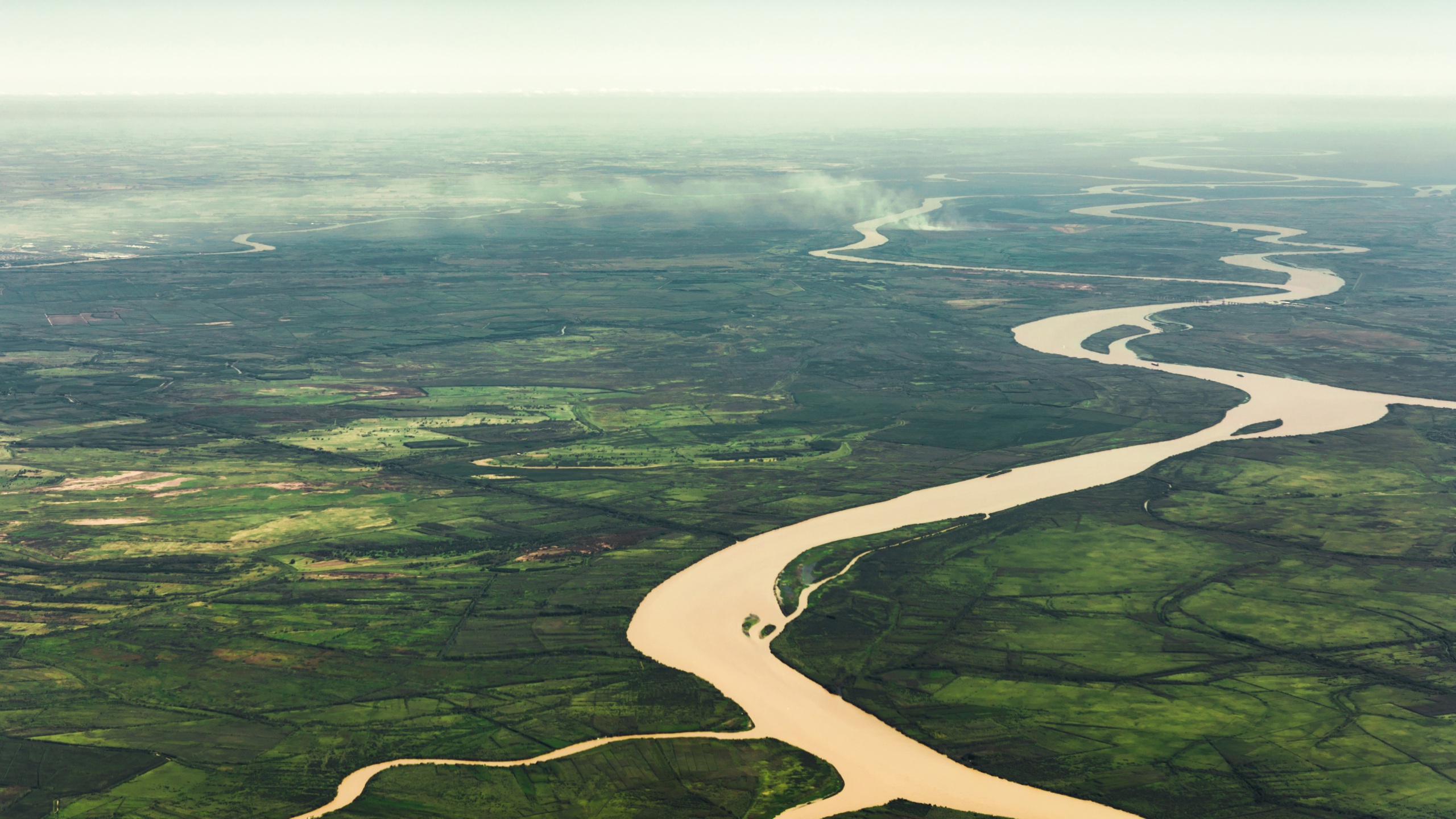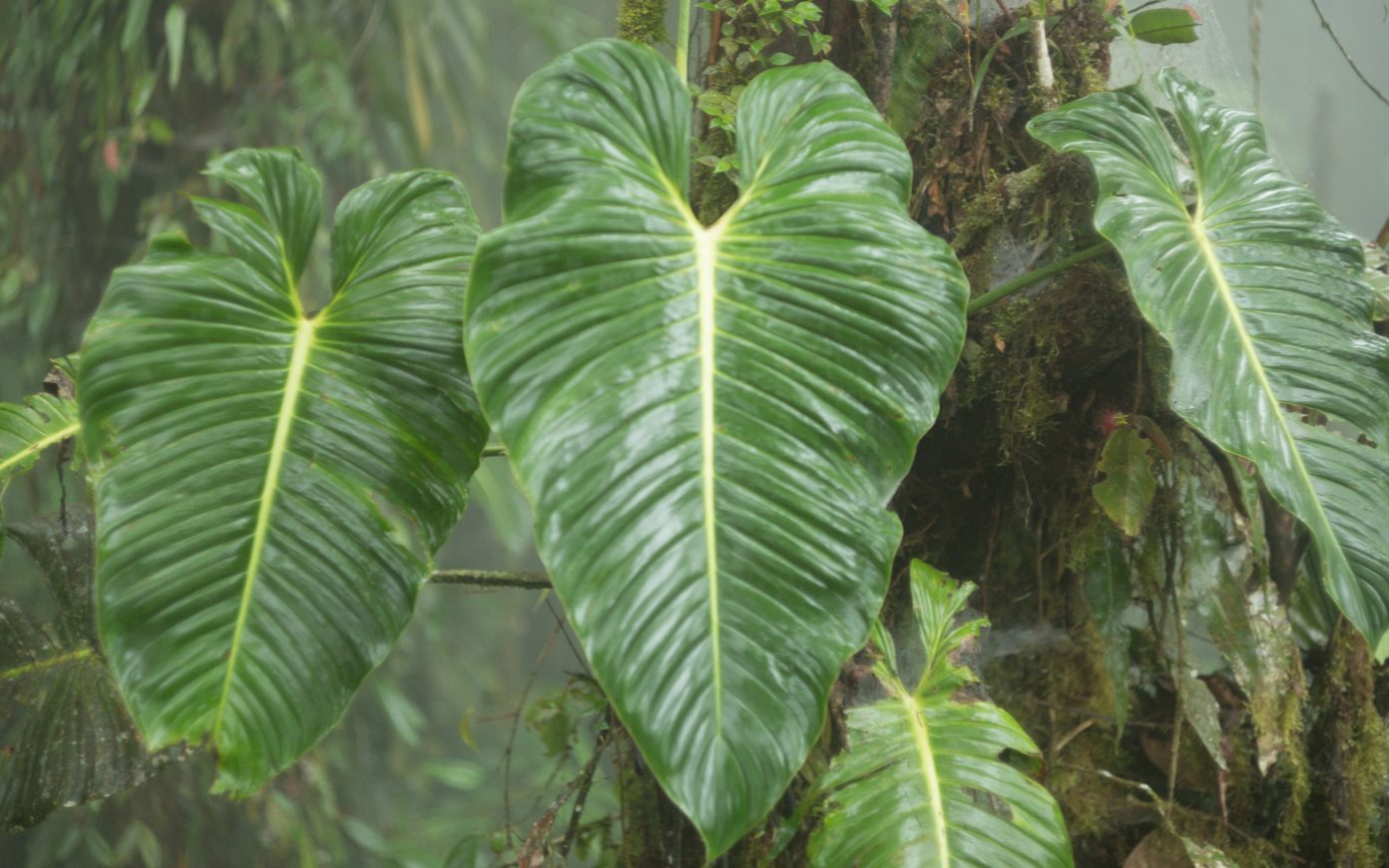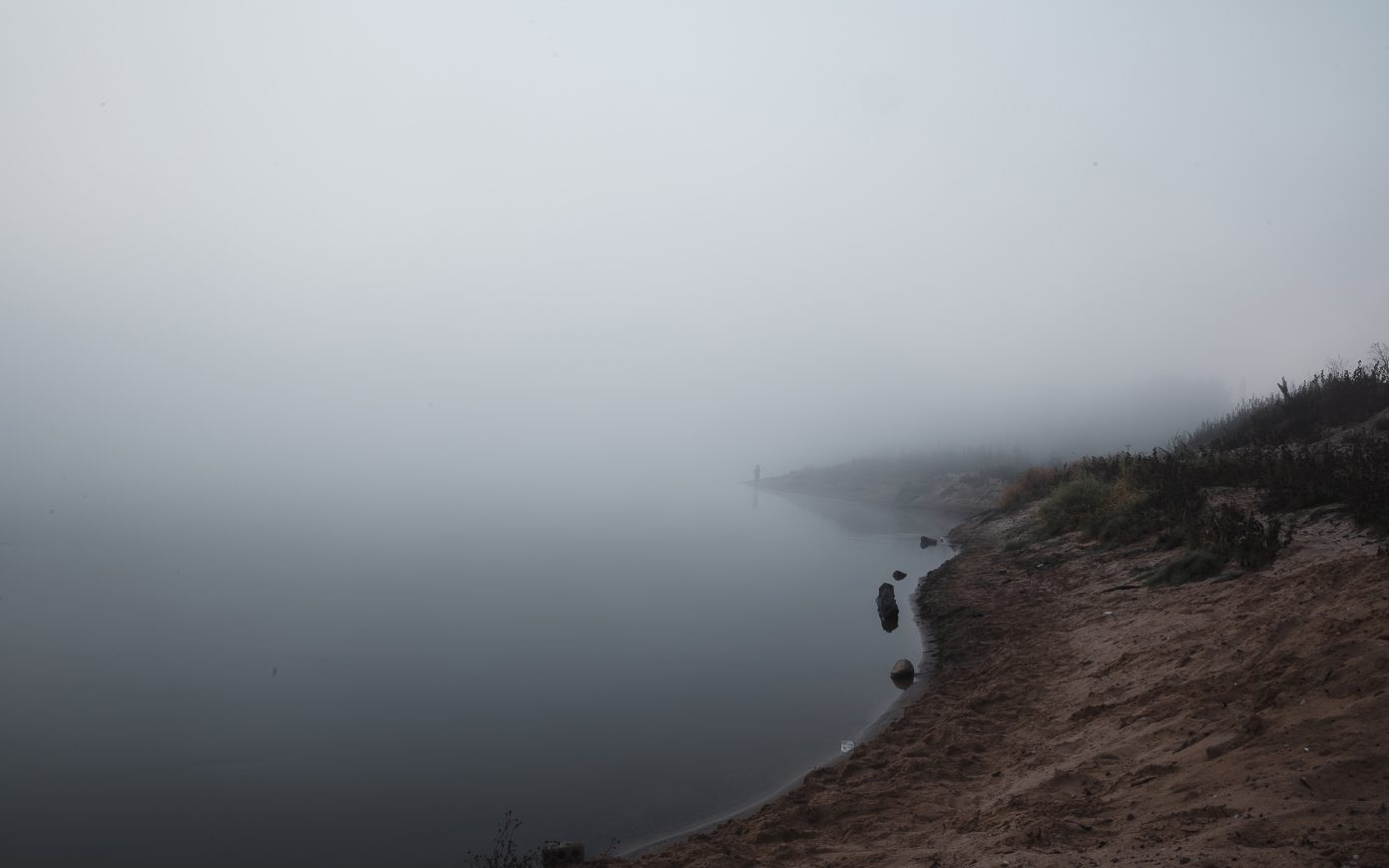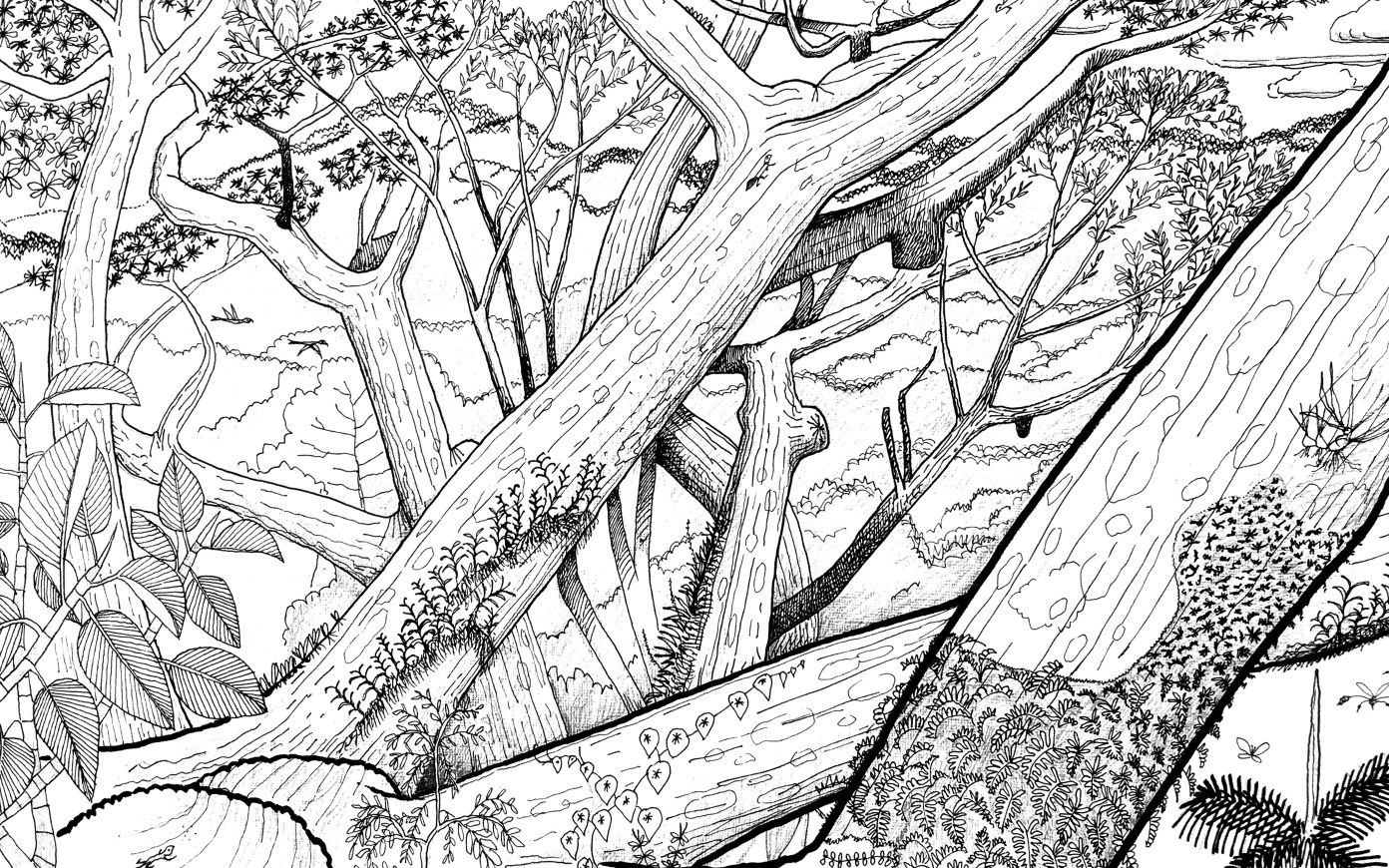Could you elaborate on the objectives and methods of Wild Legal, the nonprofit/ school you co-founded?
Wild Legal is both a school and an incubator. Its format is based on the British moot courts and trial practice. Every season, students enroll in our program to receive training on issues related to the rights of nature as well as new concepts such as “ecocide” or “planetary boundaries.” Over the course of six months, the law students are split into teams and take up practical cases of infringement of the rights of nature. These cases are treated as lawyers would, using conventional arguments from our legal systems, but also suggesting new concepts that aren’t recognized in existing law. The idea is to prototype and test new arguments and legal instruments. Our aim is to demonstrate the value of establishing an ecosystemic law. Following the work carried out jointly by our organization and its student lawyers, we deliver the legal briefs that are presented to the relevant local organizations in order to make this intellectual material available to local struggles. Our school therefore not only trains the next generation through case work, but also offers the possibility of taking real, activist action to help advance our society.
That’s for the “Legal” part of Wild Legal. Then there’s “Wild,” which reflects both our society’s interest in a form of unrestrained freedom, and all our prejudices toward the state of nature. We use that term to express our desire to give nature a voice. Wild humans are viewed as having no culture, no manners, standing outside of human society. We believe that, on the contrary, it is those humans who are disconnected from nature that are problematic. We aim to restore this part of nature we have cut ourselves off from by positioning ourselves at the top, by dissociating ourselves from our environment. The key idea behind Wild Legal is that the laws of the wild, the laws of nature must guide humans in their capacity as members of the community of the living.
Last year, the case study was that of mercury pollution in the Maroni River basin, in French Guyana. After having collected, with the support of local community groups, the case file materials identifying all of the infringements of human or environmental rights, as well as the instances of the French government’s failure to act (carence fautive), the students have had the chance to take part in real-life pleas.
The very essence of this school is about experimenting with new pathways, in order to do more than to “fight against” and effectively propose new approaches and bring about social change. Unlike what is expected of them at university, where young lawyers mainly apply what they’ve read or heard, we ask them to deconstruct their biases and prejudices and to be creative. They then realize that there are cultures in which private property doesn’t exist. That the rights of nature shouldn’t necessarily be subordinated to the rights of human beings, or that the network of values of our Western society, between the individual and the collective, can be challenged. In the moot courts we organize, they need to be creative and project themselves into a legal context that doesn’t exist yet. It is not just a matter of applying, but indeed of building law.
Valérie Cabanes, who works as a legal scholar on the concept of ecocide, has contributed to bringing about this education project. We are also accompanied by lawyers from the Paris Bar including William Bourdon, a well-known figure who inspires students to work on momentous trials. Other contributors have more interdisciplinary backgrounds, such as Simon Rossard, who co-founded the nonprofit with me. A lawyer who turned to the art world, he helps us look forward and show what our future law could look like. Our twenty students are divided into five teams, each of which is coached by our organization over a six-month period.
We are currently working with the second cohort, after the 2019–20 one. Both have been impacted by the pandemic, which has held back our initial projects, but we nevertheless hope that we will soon establish partnerships with faculties of law, in order to confer credits that would be recognized by the higher education system. The partnerships we currently have are still informal, with certain professors encouraging their students to enroll in the program. The originality of our approach makes up for our lack of visibility.
You expound such new legal concepts as ecocide and planetary boundaries. Can you explain these ideas?
We are putting new tools to use in order to try to get law to change. Shaping the law entails transforming language and hence, also the image we have of society. We are especially interested in the distinction between the rights of humans and the rights of the living. We are in a revolutionary position given that, from a legal point of view, it is still up to humans to lay down rules. On the one hand, the human legislator must adopt a new legal model in order to address the environmental challenges of our century; on the other, they must also position themselves outside of their own person in order to consider the interests of the living and ecosystems. The question is therefore how, as humans, we should behave toward this community of the living which we form part of.
Science has given us a broad view of humanity’s impacts on ecosystems, notably through the “planetary boundaries” framework. Scientists working on conceptualizing the inner workings of the living world have identified nine planetary boundaries, which all interact, including climate, the disruption of which everyone knows will have a global impact, as well as biodiversity loss, land use changes, ocean acidification, freshwater use, and a few more. Through a domino effect, if one of them is brought out of balance, they are all impacted. We use these interdependent mechanisms in our legal reasoning to identify the vital balance that must be maintained in order to uphold the rights of humans and nonhumans.
Ecocide refers to the damage caused to ecosystems. The idea is to be able to hold criminally liable the perpetrators of the most severe damage, who disturb the balance of natural environments and undermine the security of our territories. There currently is no globally accepted definition of ecocide, though several are under consideration. The concept relates both to legal models and to ethics. Indeed, the crime of ecocide raises the legal question of what constitutes a wrongdoing, as well as that of the threshold for acceptability of the damages inflicted on the living, which varies according to culture, interests, resources, and so on.
To give a concrete example, this year’s case study focused on the dumping of red mud into the sea off the coast of Marseille over the course of several decades by the Alteo alumina factory. We are facing a situation of mass pollution resulting in the death of a marine ecosystem. With ZEA, an ocean conservation nonprofit, we instructed our students to handle this case from the perspective of existing law, but also from that of the crime of ecocide. The students then realized that the definition proposed by Wild Legal differs from that of the French government. The aim is to thereby demonstrate the paradigm shift that would occur as a result of a more ambitious definition. We worked with the Citizens’ Convention for Climate and accompanied members of Parliament and senators in improving the draft legislation, unfortunately without being heard by the government. Instead of the “crime” of ecocide, the law enacted proposes a definition of ecocide that downgrades it to a conventional misdemeanor approach to pollution, only applied based on intentional conduct, which is more complicated to prove than cases of negligence. This new legislation is not in keeping with the concept of ecocide, nor with the ambitions of the Citizens’ Convention for Climate that substantiated it, nor with the environmental challenges of our times. This is what we are trying to prove by presenting a proof of concept during our simulated trials.
Is France lagging behind other countries in terms of environmental conservation? What new legal intelligence could we consider in order to address this situation?
The Cartesian vision of man as “master and possessor” of nature, coupled with a centralized vision and a long colonial tradition, has robbed us of our connection to nature, in contrast to the culture of certain Indigenous peoples. In Ecuador or New Zealand, local populations and their customs carry some clout regarding the way that legal mechanisms are elaborated, and the rights of nature doctrine. underwent rapid development there.
Nevertheless, grassroots initiatives representing the rights of nature are thriving in France. Our legal system lends itself to this given that anyone can form a collective representing the interests of nature without having to prove any particular competence. Thanks to the freedom of association, anyone can create an organization aiming to protect the environment, from Les Amis du Mont-Blanc to La Seine n’est pas à vendre, there are no restrictions.
We are witnessing the emergence of many projects that are adopting a logic of upholding the rights of nature for itself, thus calling into question an anthropocentric reading of environmental conservation. What we are still lacking, more than greater environmental consciousness, is the conviction that our legal system can adapt to new worldviews. We must have the courage to initiate bio-centric democratic and legal proceedings in order to disengage from a system of thought inherited from the last century that opposed civil liberties and the public interest, and therefore environmental conservation.
In the fields of architecture and urban planning, there is the example of the law applicable to protected species, which sometimes gets in the way of construction projects. To provide this legal framework, scientists draw up lists of protected species based on the observation of the decline or extinction of a species. This implies that we humans must establish limits beyond which we consider it to be illegal to adversely impact a species, its natural habitat, or anything that ensures its reproduction. In this situation, we are in the presence of a law that is not anthropocentric (given that the list isn’t defined based on human needs), but biocentric. However, this biocentric conservation mechanism is regularly challenged, and the current legal system allows for exemptions where any higher human interests are involved. But how can the higher interest of humans be assessed? Is building a new highway an absolute priority? Is opening a new gold mine to quench our need for fineries a priority? Is building an airport really in the higher interest of humans if it results in irreversible environmental destruction? In this unequal balance of power, the protection of nature is all too often the losing party. A proper balance must be found, and there are real ethical challenges that our society must now address.
In the French government’s view, the notion of ecocide seems to be understood as being freedom-killing, as if recognizing such a crime could lead to some sort of curtailment of our “individual freedomsRemarks made in private by the French prime minister Édouard Philippe following the the Citizens’ Convention for Climate, as reported by the press (Le Canard enchainé, June 2020).”, primarily understood as the corporate freedom to trade. This vision follows a purely output-oriented perspective, even though the public interest actually depends on the health of nature that this model puts at risk. The section of society that is beginning to think in terms of commons and the protection of the living is well aware that there is no contradiction between civil liberties and the common good, though the benefits of the few cannot take precedence over everyone’s interests. Only an understanding of the commons that is free from any growth objectives could emancipate us by removing the concern for competition.
Thinking collectively is also to consider the accumulation of human impacts and the consequences in terms of overshooting planetary boundaries. How can we govern ourselves to prevent such an overrun? There is currently no legally-recognized tool that enables us to assess the cumulative impact of projects and to enforce caps that could ensure that the balance of the living world is maintained. The “project-by-project” approach is extremely problematic however, and that is what leads us to imagine development schemes that would adopt an ecosystemic logic. These currently remain too weak and we must reason in terms of the collective. The productivist model, which gives individuals the opportunity to play the system and harm the whole community, thereby also depriving them of the ability to act, can no longer be sustained. But by reasoning in terms of collective concern and overlapping and shared responsibilities, we can then consider solutions that are viable in the long term.
Should wealth generation be viewed through the prism of society rather than the economy, companies such as those mining gold in the Amazon would have no prospects given that they destroy ecosystems, while generating very few jobs, thereby participating in ungrounded financial speculation that is disconnected from the essential needs of the population. In contrast, agroecology, sustainable fishing, alternative medicines, research on biomimicry, etc. would acquire value and be promoted. The Amazon would be perceived as a laboratory, as a pool of resources to be preserved rather than exploited. From that point of view, colonization has left a deep imprint on territories but also our minds, and it is difficult to move away from a vision where mining is the only development driver available for this territory, despite the fact that it leads to the destruction of all other potential sectors of the economy.
This is a highly political issue. Wenare experiencing a momentum of annoverall questioning of our patriarchalnsociety and our attitude of dominationnof the living. Movements promotingnwomen’s rights, minority rights, andnthe rights of nature are emerging at thensame time because they are advocatingnfor emancipation, equal respect, andna society that places the collective atnthe core of its development model. Asna result of this movement, the need,nfrom a strictly legal perspective, toncreate rules in order to draw up a newnsocial contract between humans, butnalso with nonhumans, has emerged.
We would therefore need to start applying systems thinking, geared to the commons. But how can it be made relevant at both local and global scales?
That is the main issue we are facing. An ecosystemic approach would make it possible to consider all territorial scales by affiliating appropriate levels of responsibility. The government and a resident cannot possibly shoulder the same responsibilities, but they can however dovetail with one another.
We suggested creating a High Authority for Planetary Boundaries, a central body which would serve to curtail France’s impact on planetary boundaries. The government would secure the key mechanisms ensuring the stability of our ecosystems, while citizens would become the “guardians” of their territory, ensuring that future generations, human and nonhuman, will be able to inhabit it.
The centralization of thought at the “summit” of our system generates a deficient distribution of responsibilities. The Parliament, which is based in Paris, enacts legislation that is completely disconnected from territories. At the same time, there is a great deal of dissatisfaction from part of the population regarding mechanisms of so-called “par ticipator y democracy” that hold no influence on final decision-making. Restoring a certain latitude in the governance of territories would prevent having to apply policies equally in the Amazon, the Mediterranean, or northern France. The same standardization rules apply throughout the country, irrespective of the diversity of climates or the empirical experiences of these territories. We then end up with absurd situations, such as prohibiting the building of houses on wooden stilts in French Guyana under the pretext that this would be incompatible with modern electrical installations.
The intelligent approach would be to activate locally-based decisionmaking methods, drawing inspiration from Indigenous peoples to do so. In the Loyalty Islands, a French territory, the local populations were given the freedom to draft their own environmental code. In French Guyana, a region I know well as I have fought against the Montagne d’Or projectA mining project in the Amazon that was abandoned by the French government in 2019 following two years of protests and mobilization by local populations and nonprofits, including the Or de question collective, for which Marine Calmet is a spokesperson. there, Indigenous peoples are demanding territorial self-governance, pursuant to an internationally recognized right.Thanks to the right for free, prior and informed consent, a principle of international law stemming from the International Labour Organization Convention 169. The same question can legitimately be asked concerning all citizens: as “guardians,” shouldn’t we be entitled to a right to monitor and get involved at the territorialscale rather than having to wait for a hypothetical wake-up call at the centralized level? We would then see Amazonian, Polynesian, Corsican, and Breton models emerging, all potentially much better suited to the particular needs of their territory.
In Brazil, Indigenous peoples have thus written consultation protocols to address large mining and drilling projects. These reveal the connections these populations have to their lands and define the way in which they want to be involved in the decision-making processes relating to the future of their territories. Through this process, they value the voices of all members of the community that constitute the social fabric, by requiring the consultation of women—as they hold the knowledge of plants and take care of the land— and children—who represent the future generations.
I find this form of democracy very inspiring. Alternative models that can make different voices heard and make everyone an active participant in the decision-making process. More than a new intelligence, new wisdom must be found, in order to make the voice of ecosystems heard within these decision-making models, through those that represent them or act as their guardians. In New Zealand for instance, the Whanganui River was granted full personhood, with human guardians appointed to protect its interests. This guardianship system, where the interests of a person are protected by another without regard to any personal considerations is completely standard in our legal system given that it is applied in France to such cases as children and individuals who are incapable of making decisions on their own. Its originality lies in its scope of application.
Unfortunately, we are seeing great reluctance from our environmental authorities as soon as economic or political factors are involved. This is why there is an urgent need to rebalance the different voices of ecosystems and populations, as a matter of overall sustainability. We cannot continue to condemn the interests of nature and those of future generations, as this is paramount to having an ethical approach to the future.




